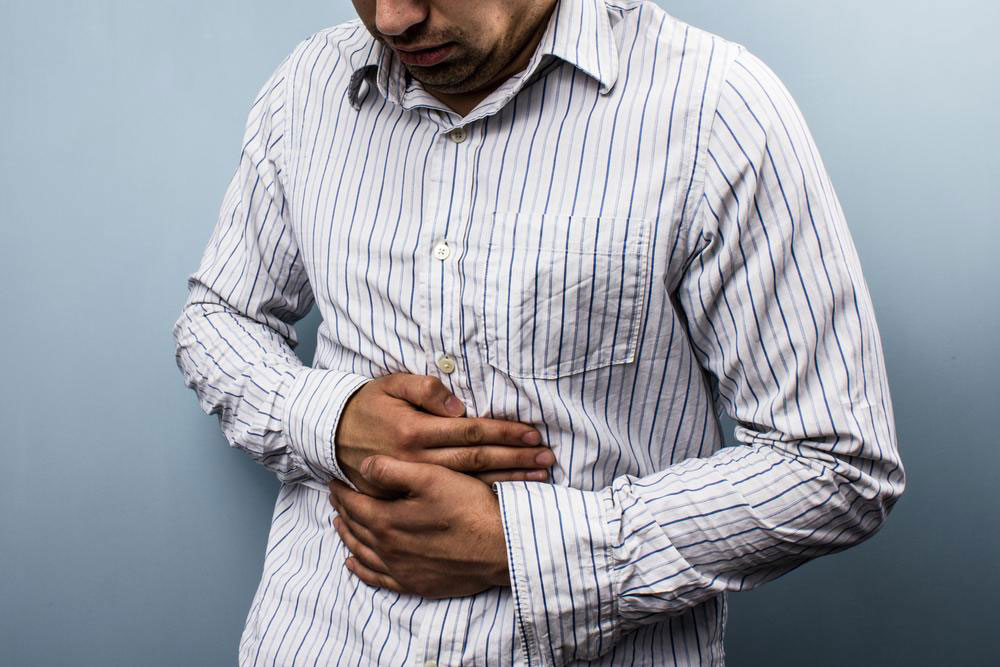Comprehensive Guide to Managing and Treating Diarrhea Effectively
This comprehensive guide provides in-depth strategies for managing and treating diarrhea effectively. It covers causes, symptoms, home remedies, dietary tips, and when to consult a healthcare professional. Emphasizing hydration, natural remedies, and preventive measures, the article helps readers understand how to alleviate symptoms and prevent recurrent episodes for better gastrointestinal health.

Effective Methods for Managing and Treating Diarrhea
Diarrhea is a common gastrointestinal condition characterized by frequent, loose, and watery stool passage. It can affect individuals of all ages and may result from various underlying factors. While mild diarrhea often resolves naturally within a few days, persistent or severe cases require prompt medical attention. Understanding the causes, preventive measures, and treatment options can significantly improve outcomes and help manage symptoms effectively.
Understanding the Common Causes of Diarrhea
Diarrhea can be triggered by numerous factors, ranging from infections to chronic medical conditions. Recognizing these causes is crucial for proper management and treatment. Some of the most prevalent causes include:
Infections: Viral infections like norovirus, rotavirus, or stomach flu are among the most common culprits. Bacterial infections such as Salmonella, E. coli, or Shigella can also lead to diarrhea, especially from contaminated food or water. Parasitic infestations, including Giardia or worms, are another potential cause.
Food-Related Issues: Food poisoning resulting from spoiled or contaminated food can cause sudden diarrhea. Additionally, food intolerances, such as lactose intolerance or gluten sensitivity, may lead to chronic or recurrent diarrhea when trigger foods are consumed.
Medical Conditions: Long-term gastrointestinal diseases like ulcerative colitis, Crohn’s disease, celiac disease, or irritable bowel syndrome (IBS) frequently present with diarrhea as a primary symptom. Other conditions like pancreatic insufficiency or certain metabolic disorders can also contribute.
Medications and Drugs: Certain medications, such as NSAIDs, antibiotics, or chemotherapy drugs, might have diarrhea as a side effect. It’s essential to review medication risks with your healthcare provider.
In cases of severe or prolonged diarrhea, medical professionals may conduct blood tests, stool analyses, or endoscopic examinations to identify underlying problems. Diagnosing the root cause allows for targeted treatment plans, improving recovery chances.
Effective Strategies for Managing Diarrhea
The majority of diarrhea cases tend to resolve naturally within three to four days with appropriate care. Over-the-counter (OTC) medications can provide symptomatic relief, including anti-diarrheal agents like loperamide or bismuth subsalicylate. For bacterial infections, prescribed antibiotics may be necessary. It is critical to consult a healthcare professional before initiating any medications to ensure proper dosage and avoid potential adverse effects.
Chronic conditions such as celiac disease or IBS require ongoing management by a gastroenterologist. Developing a personalized treatment plan, which may include dietary adjustments, medications, and lifestyle changes, can significantly help control symptoms and improve quality of life.
Managing dehydration is a vital aspect during episodes of diarrhea. Fluid and electrolyte replacement prevents complications like dehydration and electrolyte imbalance. Drinking plenty of water and oral rehydration solutions, especially those containing salts and potassium, help replenish lost nutrients. Incorporating electrolyte-rich drinks such as sports beverages aids in maintaining hydration levels.
The BRAT diet—bananas, rice, applesauce, and toast—is widely recommended for easing symptoms. Bananas are rich in pectin, which helps absorb water and firm up stool. Rice is gentle on the digestive system, and applesauce provides additional soluble fiber. Toast offers sustenance without irritating the gut. These foods are easy to digest, low in fiber, and help restore gut stability.
Probiotics can play a helpful role in restoring gut microbiota, especially in cases of persistent diarrhea. They introduce beneficial bacteria that help balance intestinal flora, aiding in recovery. Common probiotic foods include yogurt, kefir, sauerkraut, and sourdough bread. Consulting a healthcare provider before starting probiotic supplements is recommended to determine the appropriate strains and dosage.
Natural remedies may also support recovery. Ginger has anti-inflammatory properties and can help detoxify the digestive tract. Fenugreek seeds are thought to soothe the gut lining. Buttermilk can aid digestion, while chamomile tea offers anti-inflammatory effects and pain relief. Apple cider vinegar possesses antibacterial properties, making it a traditional remedy for gut issues. Honey, known for its healing properties, can aid tissue repair in the intestines. Additionally, organic orange peels steeped in hot water may support digestion and nutrient absorption. Including potassium-rich foods like bananas compensates for electrolyte loss and promotes gut health.
Preventive Measures and Lifestyle Tips
Practice thorough hand hygiene by washing hands with soap and water before meals or after using the restroom.
Wash fruits and vegetables thoroughly to remove bacteria and parasites.
Maintain cleanliness in your kitchen and food preparation areas.
Refrigerate leftovers promptly to prevent bacterial growth.
If diagnosed with food intolerances, avoid triggering foods like dairy or gluten.
When traveling, avoid street foods; prefer bottled water and well-cooked foods. Steer clear of spicy or greasy dishes if sensitive.
Regularly practicing these preventive strategies can significantly reduce the risk of developing diarrhea. For those with chronic gastrointestinal conditions, ongoing management includes lifestyle adjustments and dietary modifications to prevent recurrence.In summary, treatment for diarrhea varies based on severity and causes. Simple home remedies, dietary strategies, and over-the-counter medicines can be effective for mild cases, while severe or persistent conditions necessitate medical intervention. Identifying and managing underlying triggers, along with proper hydration and nutrition, play crucial roles in recovery. Always seek medical advice before starting any treatment, especially for vulnerable populations like children or the elderly. With proper care and preventive measures, managing diarrhea effectively is entirely achievable, helping restore health and comfort efficiently.





